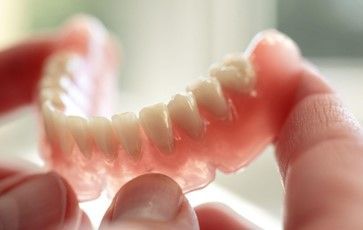FAQ About Fluoride Treatments
Admin • February 25, 2021
Do you need a fluoride treatment at your next dental appointment? If you're not sure whether you need this added service or you can skip it for now, take a look at the answers to some common treatment questions patients have.
What Is Fluoride?
Fluoride isn't a man-made chemical or synthetic treatment. It's a natural mineral found in the environment. According to the American Dental Association (ADA), fluoride from soil and rocks leaches into groundwater. This results in some level of fluoridation in water sources. Along with ground-level leaching, this mineral enters drinking water sources through fluoridation programs.
Why Is Fluoride Important in Dental Care?
This mineral strengthens teeth and reduces the risks of dental decay. Additionally, fluoridated water works topically and systemically. Not only does it bathe your teeth in the mineral, but it also helps your mouth from the inside out. Fluoride can strengthen developing teeth as they form. It's also secreted in saliva, giving you an added topical benefit.
While fluoride can strengthen teeth and reduce the likelihood of decay, it won't reverse an existing issue. Don't expect fluoride in your tap water, toothpaste, or a dentist office treatment to remove or treat cavities or oral infections.
Is Fluoridated Water Enough?
Can you get enough fluoride from drinking water to strengthen your teeth? If you drink bottled water, the answer is no. But if you regularly drink tap water, you may have a healthier mouth.
Even though fluoridated drinking water can significantly impact your mouth's health, it isn't the only way to get the benefits of this mineral. Toothpastes and in-office dental treatments can boost the effects with topical applications. This adds to the overall effect and may make it less likely you'll experience dental decay.
What Is a Dentist Office Fluoride Treatment?
The fluoride gel, foam, or paint-on varnish a dentist uses has more of the mineral than you would get in tap water or a store-bought toothpaste product.
Unlike a two-minute brush with a fluoride paste or a quick swish before you swallow a sip of water, the dentist office treatment gives the mineral extra time to work. Most treatments must stay on the teeth for at least a few minutes. The dentist will either brush, swab, or paint the treatment onto your teeth or give you a filled tray to hold in your mouth. Some fluoride treatments are flavored for easier use.
Should You Get a Fluoride Treatment?
If you drink tap water and brush with a fluoride-containing toothpaste, can you skip the treatment at your next dentist's appointment? Even though you're already doing your part at home to protect and strengthen your teeth, you may need more.
If you have a higher risk for developing dental caries (cavities), your dentist may recommend an in-office treatment. According to the ADA, common risk factors include poor oral hygiene, active dental caries (existing cavities), certain eating disorders, drug or alcohol abuse, or high oral bacteria levels. You may also need a treatment if you haven't had regular professional dental care in years.
Some patients who have little to no risk factors may also need a fluoride treatment. If you never drink tap water, have weak dental enamel, have dry mouth, or you haven't had a fluoride treatment, your dentist may suggest this option during a routine checkup and cleaning.
How Often Can You Get a Fluoride Treatment?
The answer to this question depends on your dental and oral care needs. The dentist will create a schedule to match your mouth's health risks. Common schedules include every three, six, or 12 months.
Are you ready to schedule a dental checkup or fluoride treatment? Contact Advanced Dental Care
for more information.

Missing teeth can affect your daily life, from difficulty chewing and speaking to feeling self-conscious about your smile. If you're struggling with discomfort while eating, trouble speaking clearly, or noticeable gaps in your smile, it may be time to consider dentures or partials. These dental solutions can restore both the function and appearance of your smile, helping you regain comfort and confidence in your daily activities.

Learn effective tips for maintaining your oral health at home, including brushing, flossing, using mouthwash, and making healthy dietary choices. Discover the importance of hydration, regular self-exams, and avoiding tobacco use to keep your teeth and gums in top condition. This guide provides simple steps to help you maintain a healthy smile and prevent oral health problems.
Read this blog to explore the differences between dental crowns and bridges, their purposes, and how to choose the best option for your dental health.

Discover how oral health and overall wellness are connected. Explore how maintaining good dental hygiene can prevent systemic diseases, support heart and diabetes health, enhance digestion, and boost mental well-being. Learn practical tips for integrating dental care into your overall health strategy.
Do you use dentures? Read our blog to learn more about how to maintain your dentures and keep them in top shape.
Read this blog to learn some common dental issues in older adults and what you can do to maintain your oral health as you age so your smile never changes.
Read this blog post to learn more about practicing preventative dental care from a young age with your children. Contact us to find out more.
In this article, you will find six compelling reasons to get a dental checkup before leaving on vacation. Keep reading to learn more.
Many seniors make common oral health mistakes that can have serious consequences for their health. Discover some of the most prevalent oral health mistakes.






